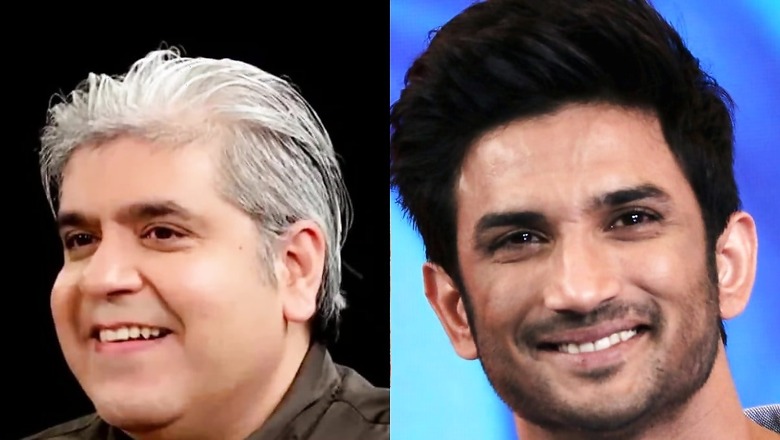
views
Former journalist Rajeev Masand faced a lot of flak after the tragic demise of Sushant Singh Rajput. Rajeev became the subject of controversy due to his blind items about the actor. However, Rajeev recently said that his blind items were “misrepresented” as their stories were already known in the film industry.
Appearing on the Shaardulogy podcast, he said, “First, it surprises you, and then you realise that it doesn’t matter. We live in times when people who don’t know you and don’t know your work are judging you. Do they matter? It takes a while to get to that place. First, it irritates you, but I actually can’t change your mind, so it doesn’t affect me…”
He continued, “I used to write a column which had multiple items, and one was a blind item. But were they damaging? Were they hurtful to people? I don’t think so. The idea was that it was supposed to be a puzzle that people were supposed to solve. In fact, it was information that everybody in the industry already knew. It was misrepresented, but what is not in your control, what can you do?”
After Sushant Singh Rajput died by suicide, his fans alleged that the actor was troubled due to the damaging effect of the blind items on his career. However, Rajeev, who now works for Dharma Cornerstone Agency, maintains that the stories in his column were already common knowledge in the film business.
In the same interview, Rajeev also revealed that Shahid Kapoor and Rekha have asked him to scrap entire interviews because they weren’t pleased with how they came across in them. He said that while he did agree to their request, he tries to avoid making cuts unless necessary. He gave an example and said, “Once, during a roundtable, one actress snapped at another actress very badly. And not fairly. I think it was an unfair way of snapping. And I got a call from another actress saying, ‘Can you please cut this out?’ It was unfair, it was rude, so we did cut it out.”
However, Rajeev Masand said that most celebs he interviews understand that he doesn’t want to create controversy. “Journalists know what to expect from their interview. People want free-flowing, candid chats. Even if they say something wrong, you correct it in the interview. You don’t need to cut it out. An interview is an opportunity to get to know who you are. We’re all imperfect, we’ve all got our flaws, we all sometimes say the wrong things. Sometimes our pronunciation is wrong, sometimes our accent is wrong. And there is a beauty in that. Anyone who understands that doesn’t ask for cuts,” he said.















Comments
0 comment